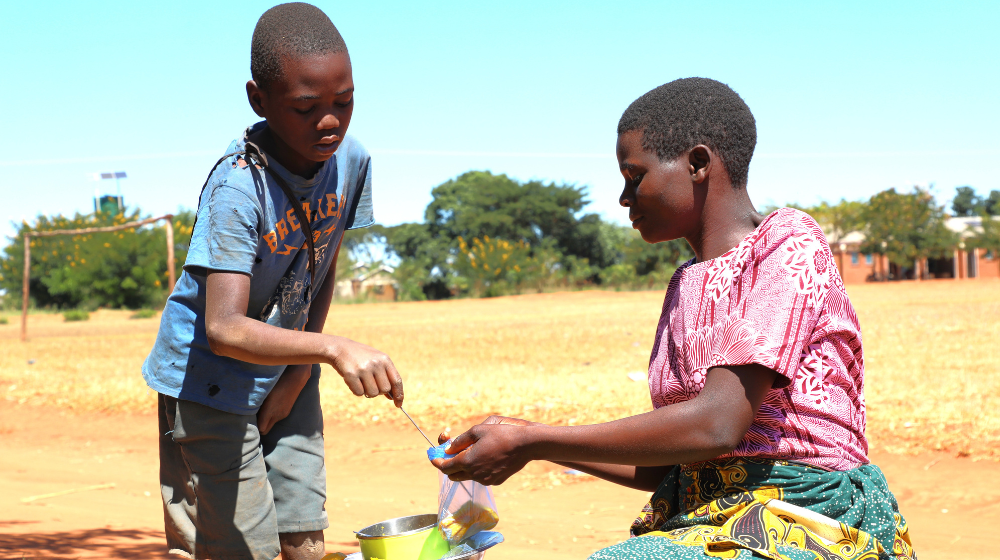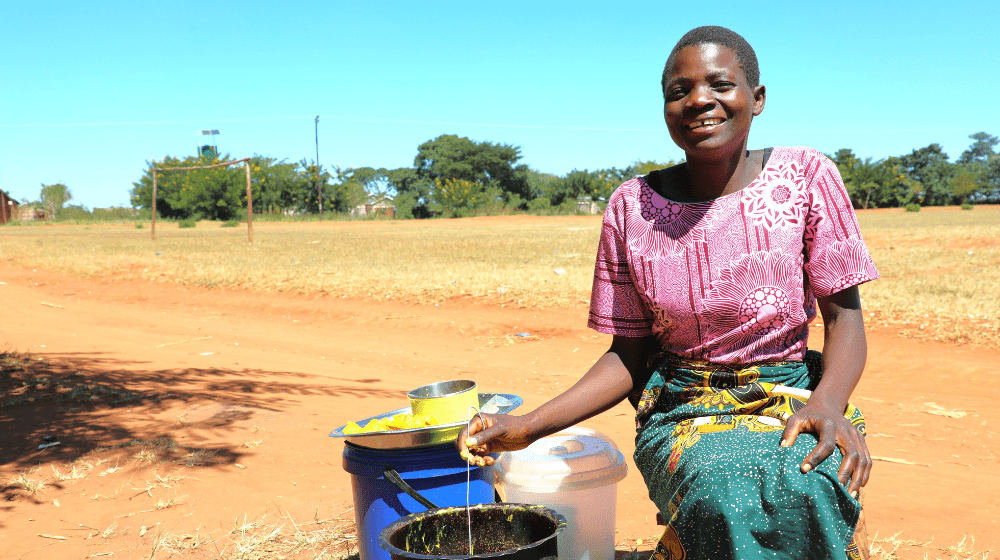DEDZA, Malawi - “All my friends had boyfriends, and I felt pressured to start a relationship as they laughed at me,” says Colleta Boniface from Dedza, Malawi. “I didn’t know anything about relationships or protecting myself.”
At 15, Colleta found herself pregnant, which ended her education journey with only a year left to finish primary school.
"It was painful to watch my friends continue their studies while I nursed my baby," says Colleta, now 24 years old.
Colleta’s struggles worsened. Her boyfriend denied responsibility and never supported the child. To care for her daughter, she took on menial work to earn money for food and clothes.
Says Colleta:
My parents couldn’t help me either. They said I didn’t listen to their advice and had to face the consequences of my action.
Lonely and depressed, Colleta made a decision to join a safe space in her community, supported by UNFPA under the Action for Teen Mothers and Adolescent Girls project funded by the Korea International Cooperation Agency (KOICA).

At the safe space, Colleta hoped to find the much-needed company, as many of her friends now treated her as a parent rather than a peer. And she got more than just company.
She learned about family planning, child marriage, and human rights—topics she knew little about growing up.
"Our group consists of 15 young women from our community," she says. "Most were also teen mothers facing similar challenges. It was easy to relate and openly discuss how we could improve our lives."
The safe space has been immensely helpful to Colleta as she has learned to be self-reliant through participation in a village loans and savings group. Every week, she saves MK500 by buying shares in the village bank. From her savings, she can also borrow double the amount, which she uses to buy flour for her fritters business.
Last December, Colleta received MK20,000 after the group shared their savings, and she reinvested the money into her business.
“I used the money to buy flour,” she says. “This made my business grow, and from the profits, I rented a piece of land where I planted soya beans. I harvested 100 kilograms and am waiting for market prices to improve so that I can sell.”
Apart from learning business skills, Colleta's knowledge on reproductive health has greatly improved since joining the safe space. She reflects that if she had this information when she was younger, her life might have been different.
"Although I regret dropping out of school because I wasn't well-informed about sex, I am now more mature and will use the knowledge I've gained from the safe space to plan my family better," says Colleta. "I don't want to have children I can't support."
Eviness Kaputeni (25), another member of the Chisomo safe space, has also found success in her doughnut business after joining the group. A mother of one and a housewife for five years, her husband, a subsistence farmer, has struggled to support the family due to poor harvests.
"For two years, we haven't harvested enough as the rains were erratic," says Eviness. "As farmers, we didn't have any other source of livelihood. Joining the safe space has helped me a lot; now I am doing business, which supplements our income."
By Joseph Scott, Communications Analyst


